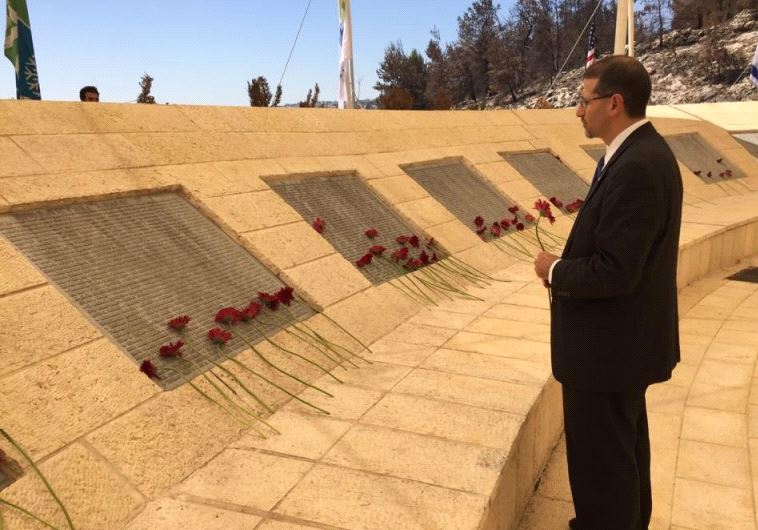Watch: Jerusalem ceremony commemorates 9/11 victims
"The US has many friends, but perhaps none can identify with our pain more than Israelis," says Ambassador Shapiro.
 US Ambassador to Israel Dan Shapiro at the 9/11 Living Memorial in Jerusalem, September 11, 2016(photo credit: US EMBASSY)Updated:
US Ambassador to Israel Dan Shapiro at the 9/11 Living Memorial in Jerusalem, September 11, 2016(photo credit: US EMBASSY)Updated: